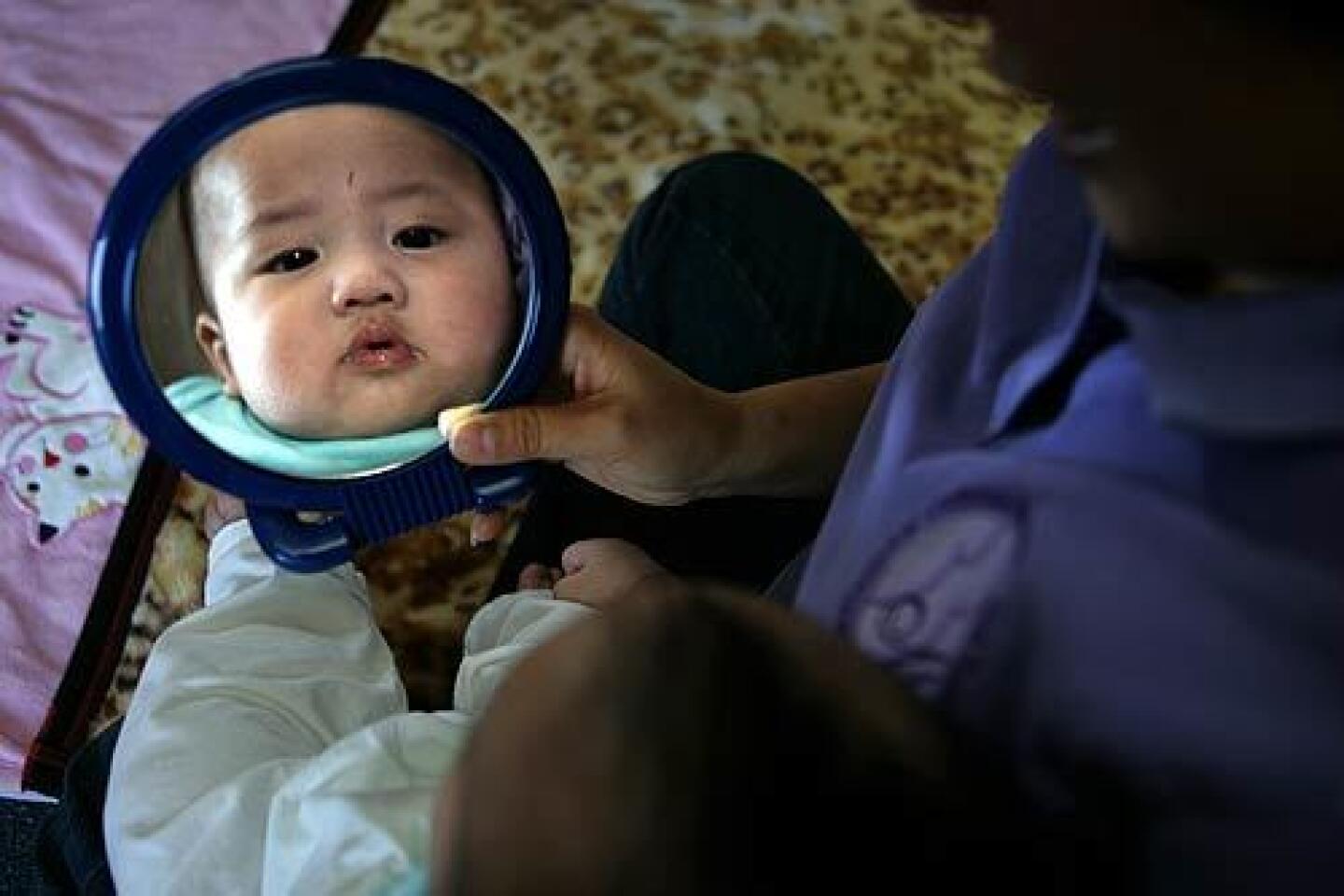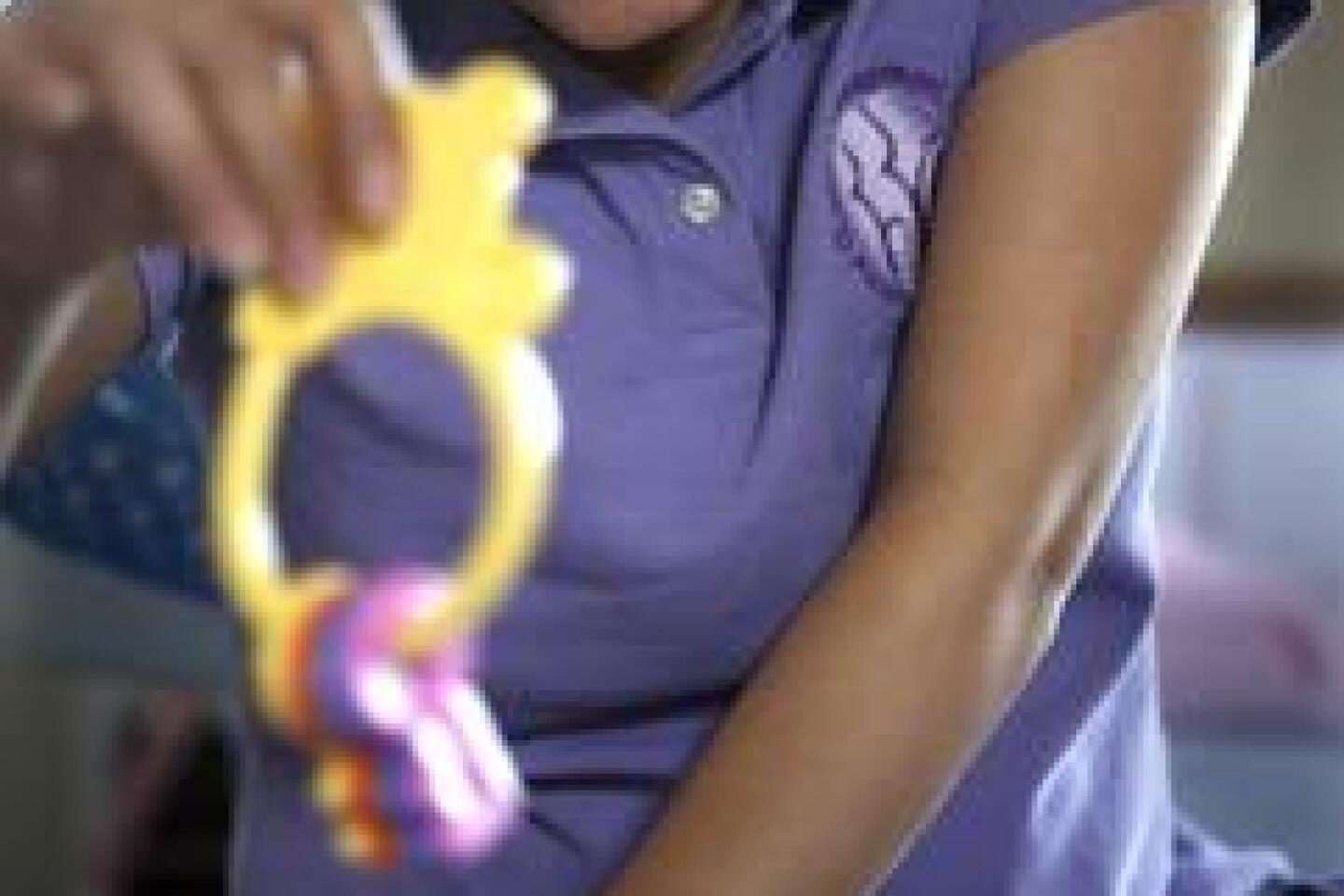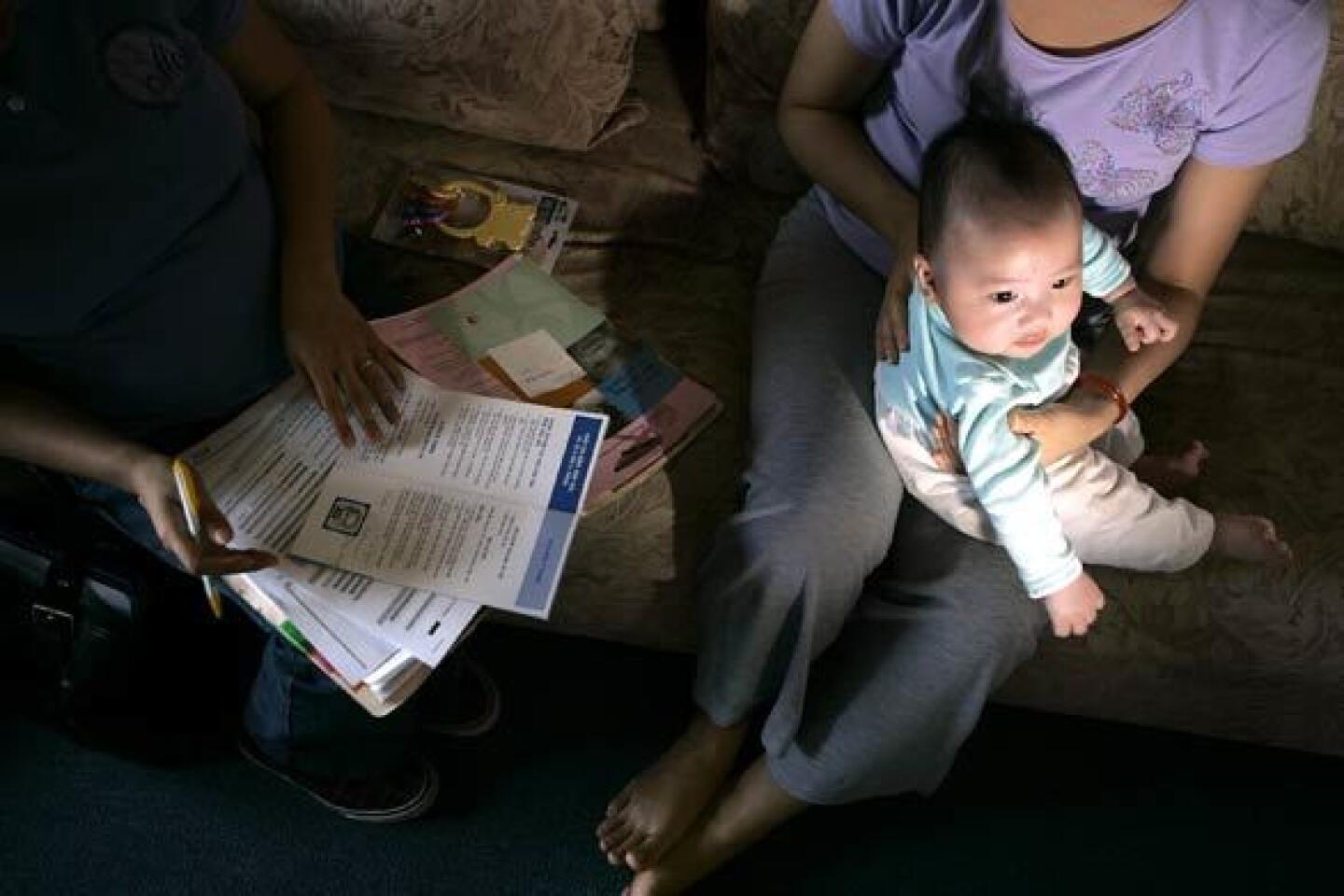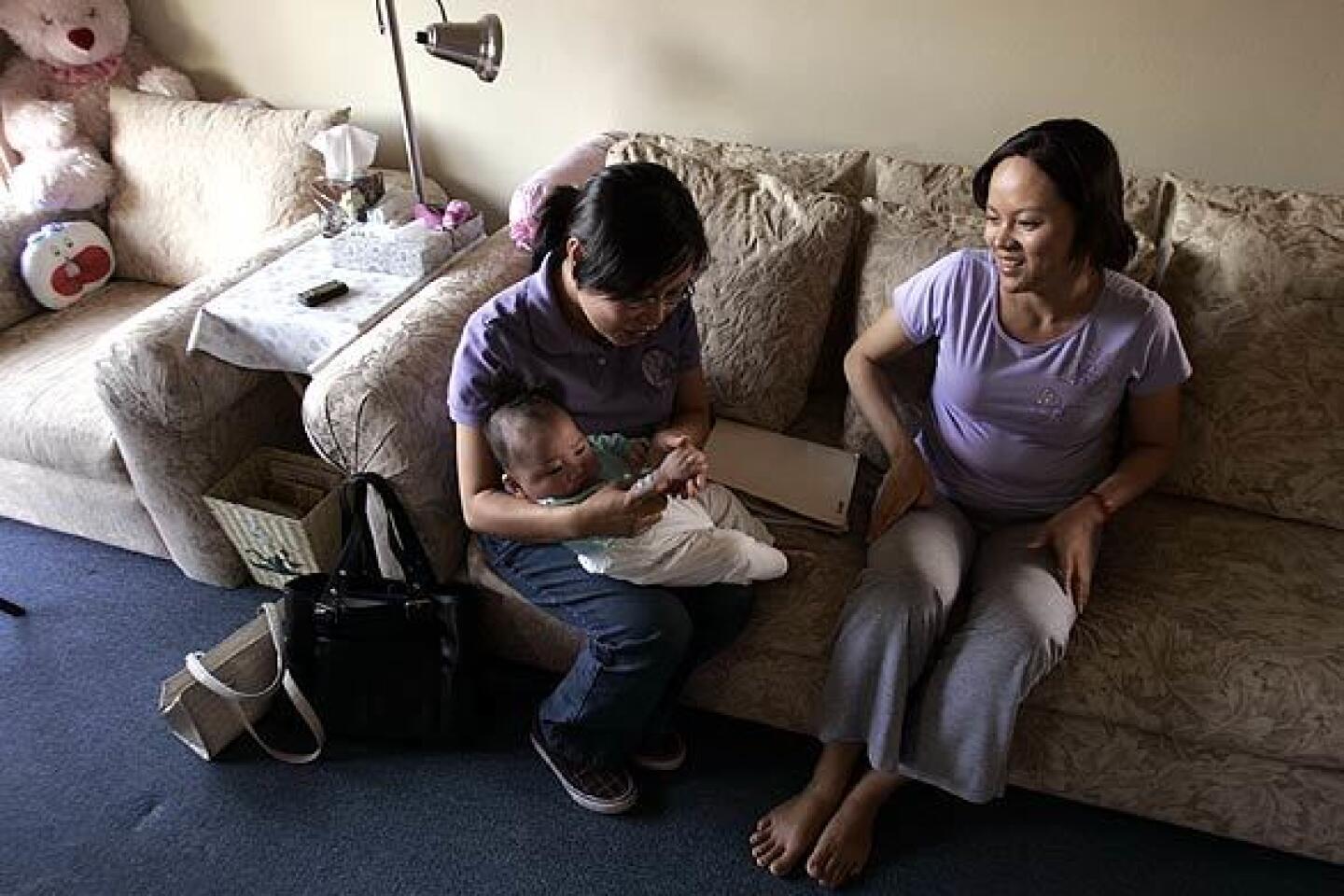Orange County social services reach out to Vietnamese community
- Share via
When Planned Parenthood representatives began handing out free condoms during an initial information session with recent Vietnamese immigrants in Orange County last year, a hush fell over the room.
Those who took one quietly whispered, in Vietnamese, that they were for friends. Some called the representative the “candy lady.” And the word “condoms” itself seemed embarrassing, so they called the handouts “raincoats.”
It was a lesson in how easily the American style of teaching things like safe sex and healthful eating can run roughshod over cultural sensibilities.
From that first meeting, officials from Planned Parenthood in Orange and San Bernardino counties decided that “we don’t want to necessarily blast them with the word ‘condoms,’ ” said spokeswoman Stephanie Kight.
“In the Mission Viejo High School, we might say something like, ‘Free condoms!’ but we might want to find a more nuanced way to talk about it in the Vietnamese community.”
Social services agencies in Orange County, home to the nation’s largest Vietnamese population, have struggled to make inroads into the community since refugees started settling there in the late 1970s.
What they’ve learned is that creating effective health programs is no longer as simple as translating brochures and hiring native-speaking staff, providers say. They are now seeing a need to craft programs that reexamine the subtle parts of Vietnamese culture, including food and lifestyle habits as well as cultural taboos.
A one-size-fits-all approach can create misunderstandings or even be off-putting, leaving health providers struggling to reach people in ethnic communities, said Quyen Ngo-Metzger, an assistant professor of medicine at UC Irvine.
A few social services agencies in Orange County, including Planned Parenthood, are beginning to figure out what works -- and what doesn’t -- for Vietnamese Americans.
They are starting from the ground up, even redoing classic American mainstays such as the U.S. food pyramid. A joint diabetes program that UC Irvine conducts with Vietnamese community-based health workers found that the food pyramid, which includes bread and pasta, didn’t work for Vietnamese people, Ngo-Metzger said.
Now, the “more culturally relevant” pyramid shows pictures of rice bowls, vermicelli noodles and pho soup instead of loaves of bread.
About 40% of Vietnamese Americans say their doctors do not grasp their cultures and values, according to the National Healthcare Disparities Report from 2003. Nearly three-fourths of Vietnamese Americans report that they do not find it easy to understand information from their doctor’s office.
Orange County’s social service agencies have sought to improve their outreach efforts in recent years.
The American Red Cross of Orange County hired the first Vietnamese American coordinator in the country three years ago.
A new diabetes program from UC Irvine is partnering with community-based social services agencies to help Vietnamese patients fit their doctors’ guidelines into their daily lives.
The Maternal Outreach Management System, a nonprofit group based in Santa Ana that helps primarily Latino women in Orange County with prenatal and postpartum care, in May launched VietMOMS through a California Endowment grant. The goal is to develop a manual for delivering care to Vietnamese women, said Ailene Ly, VietMOMS coordinator.
Through focus groups, Ly discovered that Vietnamese clients, when told to follow certain guidelines, felt they were being asked to trade in traditional values passed down through many generations.
For example, many Vietnamese clients insist on consuming thuoc bac, an herbal broth made from blackened chicken and dried roots that is believed to keep the body strong during pregnancy and postpartum.
But Ly said many of the herbs are not approved by the U.S. Food and Drug administration and could be harmful to the fetus or to breast milk.
Many of her clients’ mothers say in disbelief, “I did it. My parents did it. I grew up healthy and reared a healthy child, and now you’re telling me it’s not safe?”
The cultural dispute over herbal remedies and other issues takes more than language skills to solve, said Annie Nguyen, a VietMOMS counselor.
“We have to respect the traditions because those are held within our culture,” Nguyen said. “I’m not going to tell her directly that the beliefs are wrong, but I want to give the clients options.”
During one of Nguyen’s recent home visits, 3-month-old Theresa cooed at her mother, Xuan Nguyen, who was learning about the strict nutrition guideline for newborns.
Xuan, 37, came from Vietnam eight years ago, where three of her older children were born. “In Vietnam, taking care of children is more simple,” she said. “There are less rules.”
Doctors never told her what babies should eat; she simply went to the market every morning to buy porridge with meat. “In Vietnam, they just eat what we eat,” she said, “rice, noodles, soup, anything.”
Many health agencies and researchers try to swoop in to ethnic communities to implement programs designed for white communities, without a true understanding of cultural differences, Ngo-Metzger said.
One way to get over that barrier is to use “people on the ground” -- in churches, temple groups, social organizations and advocacy groups -- who understand the community and are trusted, she added.
University researchers have only begun to tap into these community-based resources, she said, part of a trend that started five years ago and was pushed forward by a federal mandate that healthcare be delivered in languages that patients understand.
The information gathered from people within the community is invaluable for health providers, Ngo-Metzger said.
Quynh Tran, Planned Parenthood’s Vietnamese community coordinator, was repeatedly turned down by many Vietnamese groups when she asked to talk about reproductive health.
Recognizing the challenges of reaching out to the community, Planned Parenthood has held off on heavily advertising in Vietnamese language newspapers, Kight said. The agency is still trying to craft messages in a way that does not offend, she said.
Kight said the information Tran is gathering from focus groups and talks with the Vietnamese community can be used across the country by other Planned Parenthood branches with large Vietnamese American populations.
“I think we’re just barely scratching the surface with research into these communities,” Ngo-Metzger said.
More to Read
Sign up for Essential California
The most important California stories and recommendations in your inbox every morning.
You may occasionally receive promotional content from the Los Angeles Times.

















